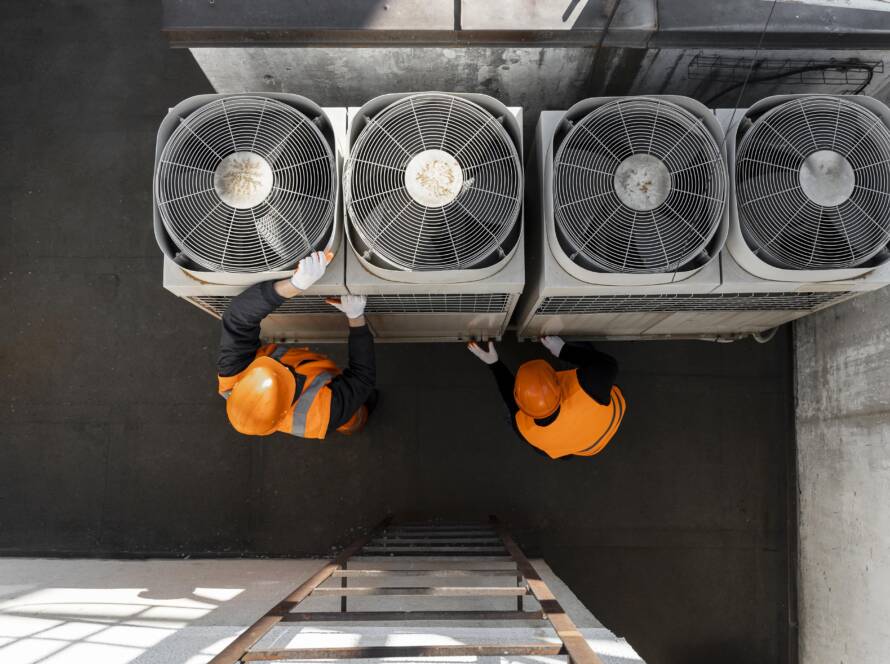As the world faces growing concerns about climate change and resource consumption, the heating, ventilation, and air conditioning (HVAC) industry is undergoing a major transformation. The focus is shifting from traditional energy-heavy systems to sustainable HVAC innovations that balance high performance with reduced environmental impact. These advancements not only meet the rising demand for comfort but also address the urgent need for energy efficiency and sustainability.
The Drive Toward Sustainability
The HVAC sector accounts for a significant share of global energy consumption and greenhouse gas emissions. Traditional systems, while effective, often waste energy and rely heavily on fossil fuels. In response, engineers and manufacturers are prioritizing eco-friendly technologies that improve efficiency while minimizing environmental harm. The result is a new generation of HVAC systems that align with both performance goals and sustainability targets.
Energy-Efficient HVAC Systems
One of the most promising areas of innovation is energy efficiency. Advanced HVAC units now use variable speed compressors, smart thermostats, and predictive controls to optimize performance based on real-time conditions. These technologies reduce energy waste by adjusting output to match demand rather than operating at full capacity at all times. Not only does this cut utility costs, but it also lowers the system’s carbon footprint.
Renewable Energy Integration
Another major step forward is the integration of renewable energy into HVAC systems. Solar-powered air conditioners, geothermal heating, and hybrid systems that combine renewable and traditional energy sources are becoming more accessible. By harnessing natural energy, these solutions provide reliable performance while significantly reducing reliance on non-renewable resources.
Eco-Friendly Refrigerants
Refrigerants have long been a major environmental concern due to their high global warming potential (GWP). Modern sustainable HVAC systems are adopting low-GWP and natural refrigerants such as R-32, CO₂, and ammonia. These alternatives reduce harmful emissions while maintaining efficiency. The shift toward safer refrigerants is a critical step in aligning HVAC operations with global climate goals.
Smart Technology and IoT
The rise of smart technology and IoT-enabled HVAC systems is another game-changer. With sensors and data analytics, these systems monitor performance, detect inefficiencies, and even predict maintenance needs before failures occur. This not only ensures optimal comfort but also extends system lifespan and reduces energy consumption. By combining automation with sustainability, smart HVAC creates a balance between performance and environmental stewardship.
Indoor Air Quality and Health
Sustainability is not limited to energy—it also encompasses human well-being. Modern HVAC systems prioritize indoor air quality by incorporating advanced filtration, humidity control, and real-time air monitoring. By reducing pollutants and allergens, these innovations contribute to healthier living and working environments, making sustainability a holistic concept that benefits both people and the planet.
Challenges and the Path Forward
Despite significant progress, challenges remain. Initial costs of sustainable HVAC innovations can be higher than traditional systems, and widespread adoption requires stronger incentives and regulatory support. However, the long-term benefits—reduced operating costs, compliance with environmental regulations, and enhanced corporate responsibility—make these solutions a smart investment
The future of the HVAC industry lies in balancing performance and environmental impact. Through energy efficiency, renewable integration, eco-friendly refrigerants, and smart technology, sustainable HVAC innovations are reshaping how we think about comfort. By embracing these advancements, businesses and homeowners alike can enjoy high-performing systems while contributing to a healthier planet. The journey toward sustainable HVAC is not just a technological shift—it is a commitment to future generations and the environment we all share.

